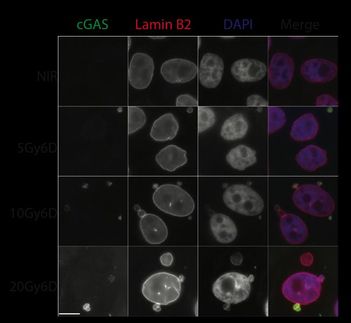deCODE Paper Describes Efficacy of DG031 in Controlling Key Indicators of Risk for Heart Attack
Advertisement
deCODE genetics announced the publication of a landmark article by a team of its scientists presenting the results of Phase II clinical studies of DG031, the company's lead compound being developed for the prevention of myocardial infarction, or heart attack. The results demonstrate that DG031 works to correct a biological perturbation caused by genetic risk factors for heart attack the company has identified, and lowers levels of well established biomarkers for risk of heart attack, including C-reactive protein (CRP) and myeloperoxidase (MPO).
"This is a pioneering demonstration of how human genetics is pointing the way to potentially powerful new medicine. Our gene discoveries have given us novel insights into the biology of heart attack, the biggest killer in the industrialized world. The at-risk versions of the FLAP gene up-regulate the production of an important inflammatory mediator, leukotriene B4 (LTB4), increasing the propensity of atherosclerotic plaques will rupture, causing heart attack. The results of our Phase II clinical work with DG031 show that it can, by inhibiting FLAP, effectively reduce the production of LTB4 in a dose-dependent manner," said Kari Stefansson, CEO of deCODE. "The same biological pathway is also up-regulated in some heart attack patients who do not have the at-risk gene variants we have found, suggesting that it may also capture important environmental risk. The effect of DG031 on CRP and myeloperoxidase, which come on top of the effects of statin therapy, is further evidence that we are effectively targeting a major biological mechanism contributing to heart attack. The next step in the development of DG031 is a Phase III clinical trial to directly examine its effectiveness in preventing heart attack."
DG031 is a small-molecule inhibitor of the 5-lipoxygenase activating protein, or FLAP, encoded by a gene that deCODE has linked to significantly increased risk of heart attack. deCODE has also isolated a second gene in the leukotriene pathway, the gene encoding the leukotriene A4 hydrolase (LTA4H), that is directly involved in the synthesis of LTB4 and is also linked to risk of heart attack.
Originalpublication: "Effects of a 5-lipoxygenase-activating protein inhibitor on biomarkers associated with risk of myocardial infarction: a randomized trial"; Journal of the American Medical Association (JAMA) 2005.





















































